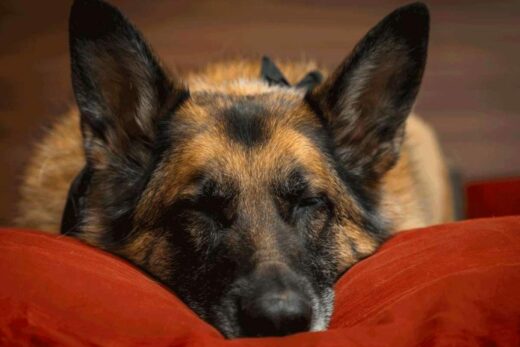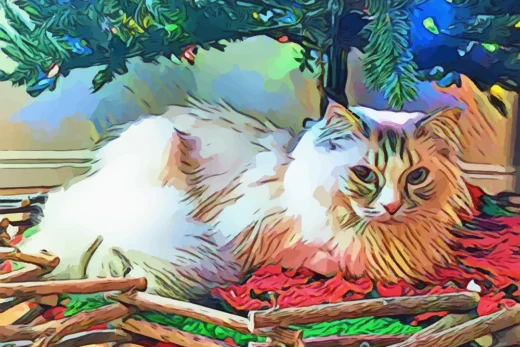It’s a familiar feeling – your cat comes close, and you can feel them purring. It happens when they come for a pet, a cuddle, when you talk to them, or even just when your furball looks you in the eyes. Humans don’t purr (as far as we know) so what’s this strange biological phenomenon all about? Let’s learn a thing or two about our feline friends: how and why do cats purr? Oh and keep in mind, if your female cat is purring and especially affectionate, she may be in heat.
How do cats purr? The biology of purring
Cats, just like their purring abilities, are unique – but you know that. Let’s look at exactly how a cat purrs before we explore the why.
In a cat’s body, purring is made possible thanks to the larynx (voice box) and laryngeal muscles in the throat, and a neural oscillator in the cat’s brain1.
 First, a signal is sent from the cat’s brain to the throat, which causes the throat muscles to twitch rapidly. This movement creates an opening and closing of the space between the vocal chords.
First, a signal is sent from the cat’s brain to the throat, which causes the throat muscles to twitch rapidly. This movement creates an opening and closing of the space between the vocal chords.  Air from the cat’s inhaling and exhaling moves past the vibrating muscles, causing the familiar sound we know as purring.
Air from the cat’s inhaling and exhaling moves past the vibrating muscles, causing the familiar sound we know as purring. 
 Listen to some adorable kittens purring while they snuggle and sleep together in the video clip below (sound on):
Listen to some adorable kittens purring while they snuggle and sleep together in the video clip below (sound on):
Why do cats purr?
Now that we know the “how” behind a cat’s purr (meow!), let’s explore why cats purr. A cat’s purr has been a thing of mystery for most of history; only now are we beginning to understand what’s behind the soothing feline phenomenon. There are several theories as to why cats purr. You might be thinking, the answer is obvious: a cat purrs when they’re happy! But the truth is a bit more complex.
 Just as humans tend to smile both when happy and nervous, cats can purr when experiencing either pleasure or pain. So purring is not just caused by the joy your cat feels when you pet them – although that may be part of it.
Just as humans tend to smile both when happy and nervous, cats can purr when experiencing either pleasure or pain. So purring is not just caused by the joy your cat feels when you pet them – although that may be part of it.
So what triggers the purring phenomenon in cats – why do cats purr? To find the answer, let’s look at the scenarios in which a cat might purr. Cats purr when they are:
- happy, content, or feeling pleasure
- being pet, tickled or otherwise engaged
- in their litter or close to their (cat) mother
- grooming each other
- in heat
- in pain, afraid, or anxious2
- giving birth or nursing
- sick, in pain, or stressed
- dying or being put to sleep
As you can see, there are many scenarios in which a cat might purr. But what, then, is the purpose or function of purring?





